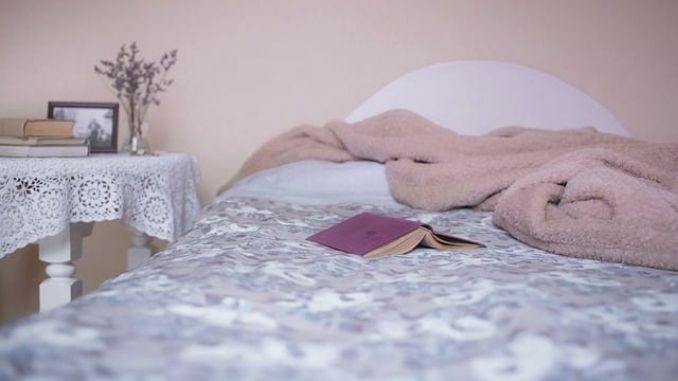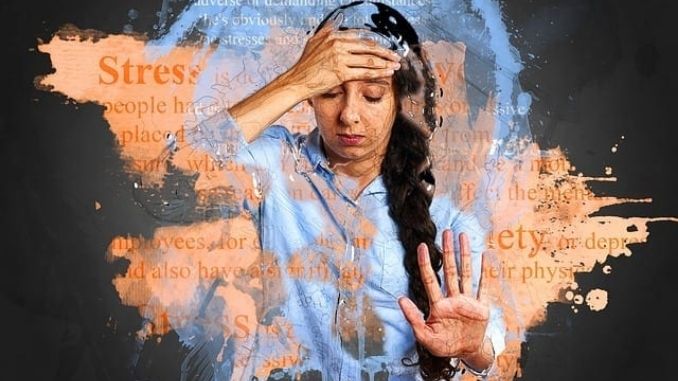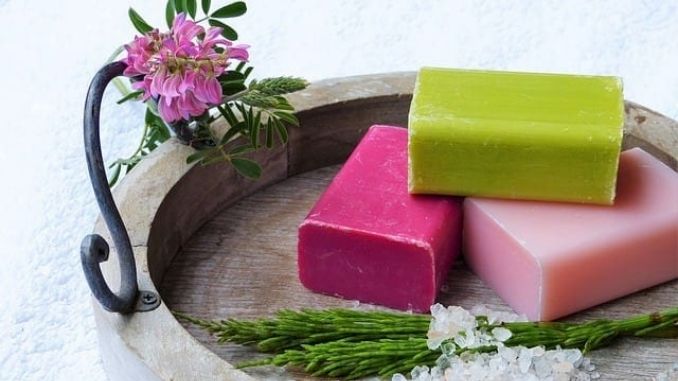
Habits that Make You Look Older: The University of Southern California reports that Americans are living longer than ever before. Between 1950 and 2000, the number of people 65 years and older rose from 8 percent to 12 percent of the total population, and that figure is expected to rise to 20 percent by the year 2050.
Back in 1900, most people didn’t live past the age of 50. Today, the average life expectancy for those born in 2012 is 78.8 years. Almost one in 10 girls and one in 20 boys born today will live past the age of 100.
You may like the idea of being able to live longer, but you probably don’t like the idea of looking older. Indeed, as 50 is the “new 40” as they say and 60 the “new 50” (and so on), we all seek to go into middle age and beyond looking younger than our years.
It’s easy to forget this goal, though, when you’re going about your busy day. Moreover, if you have several things on your “to-do” list, you may forget to do those things that you need to do to take good care of yourself.
Habits that Make You Look Older: To make it simple, try to be sure you don’t have any of the following habits. Moreover, if you do, it’s time to make a change if you want to continue receiving those compliments about how young you look!
1. You Have No Set Bedtime
Habits that Make You Look Older: Studies show that adults need seven to eight hours of sleep per night. If you regularly get six hours or less, you could be at an increased risk for heart disease, obesity, type 2 diabetes, and even premature death. Other studies have found that sleep deprivation affects long-term memory and decision-making.
In a 2013 study, researchers also made a breakthrough discovery: sleep deprivation is linked to aging skin. They followed 60 premenopausal women between the ages of 30 and 49 and found that those categorized as “poor sleepers” looked older than those who slept well. Moreover, the women had more fine lines, more hyperpigmentation (skin discoloration), and more sagging and bagging too.
Moreover, this was the first study to show that poor sleep quality can accelerate signs of skin aging. That means that a lack of sleep can not only age your body but your face as well.
To get a good night’s sleep every night, go to bed at the same time every night and get up at the same time every morning, even on the weekends. This sets your body’s internal clock and will help you get to sleep faster and sleep more deeply every night.
2. You Exercise Only If You Have Time
Habits that Make You Look Older: If you’re looking for a fountain of youth, regular exercise is about as close as you can get. In a 2017 study, researchers found that high-intensity interval training — in which you work hard for about a minute and then scale back to rest and then repeat — helped older adults reverse certain aspects of the cellular aging process.
In another 2017 study, researchers found that physical activity lengthened the telomeres in the body. Moreover, telomeres are nucleoprotein caps at the end of chromosomes and have been tied to aging. The shorter they are, the higher the risk of death. For the study, the scientists analyzed data from about 5,800 adults and found that adults with high levels of physical activity had longer telomeres and a “biologic aging advantage of nine years” over sedentary adults.
The “high level” category included women who jogged 30 minutes at least five times a week and men who jogged 40 minutes at least five times a week.
“Just because you’re 40 doesn’t mean you’re 40 years old biologically,” said study author Larry Tucker. “We all know people that seem younger than their actual age. Moreover, the more physically active we are, the less biological aging takes place in our bodies.”
3. You Slump Over Your Computer, Cellphone and/or Tablet
Habits that Make You Look Older: During the past few decades, we’ve all adapted to new technology, and now most of us spend a good amount of time every day using our computers, cellphones and tablets. The problem is that while we’re using them, we forget to watch our posture. In time, that can lead to a hunched-over, old-person look.
This sort of problem is so common that it’s often called the “computer hunch.” You know how it goes. You work for hours at the computer and pretty soon you’ve slumped in your chair, rounded your shoulders and jutted your head forward. In time, this stretches the muscles in your back, making them long and weak, and tightens the muscles in your chest, making them short. Moreover, that can lead to a more permanent posture problem that can develop into something more serious called “kyphosis.”
Kyphosis is an abnormal spinal curve that creates a hunchback appearance, and postural kyphosis — which is caused by poor posture — is the most common type. The hunch can also be caused by arthritis and disc degeneration but slouching increases your risk.
Good posture not only makes you look younger, it can help you feel younger, too. In a 2009 study, students who took on a straight posture trusted themselves and had more confidence than those who slouched, who felt more powerless. So, post a sticky note to help remind yourself, and use your core to draw yourself up, pull your shoulders back, and let your head balance evenly between your shoulders.
4. You’re Stressed Out Most of the Time
Habits that Make You Look Older: You’ve heard that stress is bad for you, but did you know that chronic stress can speed up cellular aging? It seems that too much stress can age you in just about every way. Studies have found that it can shorten your telomere lengths, increase inflammation in the body (which is associated with aging and several dangerous diseases), and even age the skin.
In 2014, for example, researchers noted that the skin was both an “immediate stress perceiver” and a “target of stress responses.” They added that stress can result in water loss in the skin (producing dry skin), reduce the skin’s ability to repair itself, and increase the formation of wrinkles.
Finally, stress can age the brain too. In a 2015 study, researchers reported that repeated stressful thoughts negatively affected cognitive health in both the short-term and long-term. It depleted attention span, reduced cognitive performance in daily life and, over time, accelerated cognitive decline.
Your best tool in the battle against chronic stress is to find something you can do every day that helps you relax and dispel your worries. Some good options include exercise, journaling, meditation, spending time with good friends or with pets, walking or engaging in relaxing hobbies like woodworking or knitting, yoga, and tai chi.
5. You Love to Sunbathe
Habits that Make You Look Older: It can feel really good to lay out in the sunshine, but if you regularly expose your skin to the sun, it’s going to age must faster than if you protect it. In fact, if you don’t make a habit of wearing sunscreen almost every day, you’re going to develop fine lines and wrinkles, hyperpigmentation and sagging much faster than someone who is more careful about regularly applying sunscreen.
Furthermore, in a 2013 study, researchers studied about 300 women between the ages of 30 and 78. They divided the participants into two groups according to their sun exposure history. About half were categorized as “sun-seeking,” and the other half as “sun-phobic.” Then, they looked for differences between them in terms of wrinkles, redness, droopy eyelids, visible blood vessels and dark spots and splotches.
Moreover, results showed that no matter what the age of the person, the sun-seeking group had more pigmentation disorders (age spots, dark areas and uneven skin tone) and other visible signs of aging, including a yellowing of the skin. In fact, they noted that ultraviolet (UV) rays accounted for 80 percent of skin aging, including wrinkles.
Bottom line — to look younger, protect your skin from UV exposure every day.
6. You Wash Your Face with Traditional Soap
Habits that Make You Look Older: For decades, people washed their faces with traditional soap without thinking twice. Today, we know that regular soap dries the skin and strips it of all its natural moisturizers, which can accelerate aging.
In a 2012 study, dermatologist George Cotsarelis stated, “It is amazing how many people you see in clinical practice who have dried out skin or itchy flaky skin, especially in the wintertime, and it is solely due to their soap. … The point of soap is to remove oils, but the skin needs some oil and moisture.”
Furthermore, the American Academy of Dermatology adds that how you wash your face can affect your appearance. In its article about creating an anti-aging skin care plan, they recommend “washing with warm water and a mild cleanser” rather than soap.
Because of the demand for more moisturizing cleansers, some soaps today are made with moisturizers and other skin-healthy ingredients but, because they often sit out in the air, they can deposit bacteria on your skin. Moreover, your best bet is a mild, moisturizing cleanser kept in a bottle with a pump or other type of dispenser.
7. You Take Things Too Seriously
Habits that Make You Look Older: After exercise, laughter is the next best fountain of youth. If you want to live longer and live better, learn to laugh more often.
Researchers followed more than 50,000 men and women for about seven years and found that the greater role humor played in the participants’ lives, the more likely they were to survive at least until the age of 70. Adults who scored in the top 25 percent for humor appreciation were 35 percent more likely to be alive at 70 than those who scored in the bottom quarter.
In addition, high scores on humor were associated with a 48 percent lower risk of death from all causes for women and a 73 percent lower risk of death from heart disease. Moreover, in men, those with higher humor scores had a 74 percent lower risk of death from infection.
Moreover, in a 2014 study, researchers found that self-enhancing humor, in particular humor based on maintaining a humorous perspective about one’s experiences, was positively related to greater resilience, better psychological health and increased well-being.
Other studies have linked laughter with boosting the immune system, easing stress and securing bonds with others, which can also help you live longer. So, feel free to punch up those cat videos and laugh more today and every day.
If you are looking for a core stability workout to help strengthen your core and back, flatten your belly and achieve your dream abs while keeping yourself injury-free, then check out the Invincible Core program, here!








